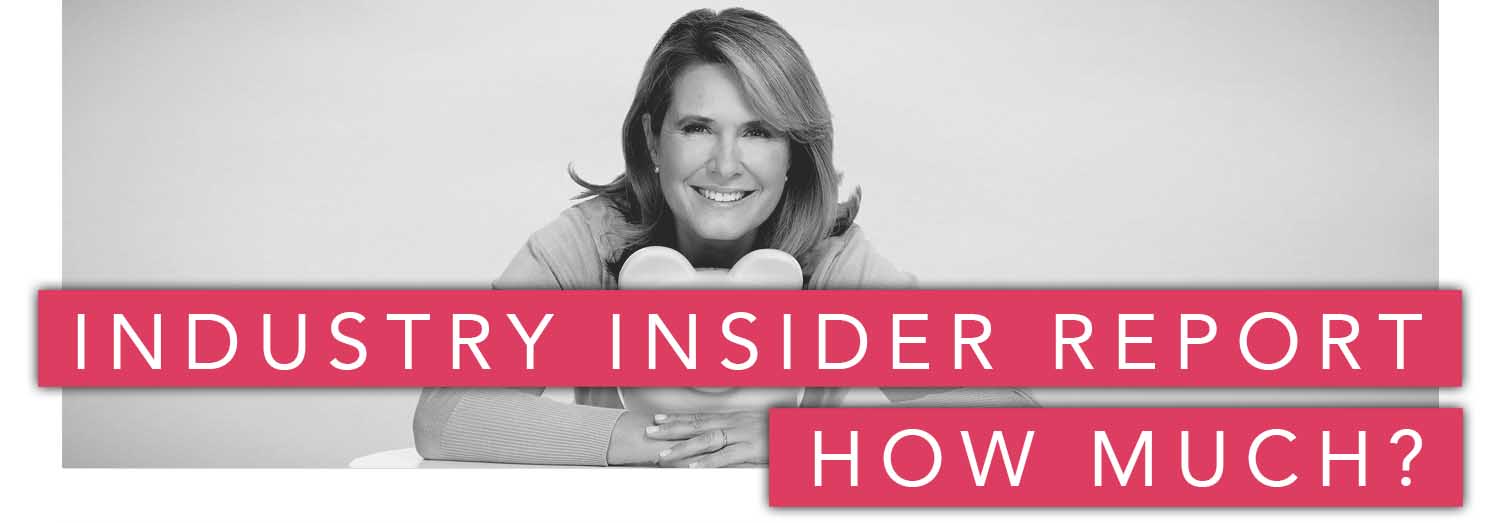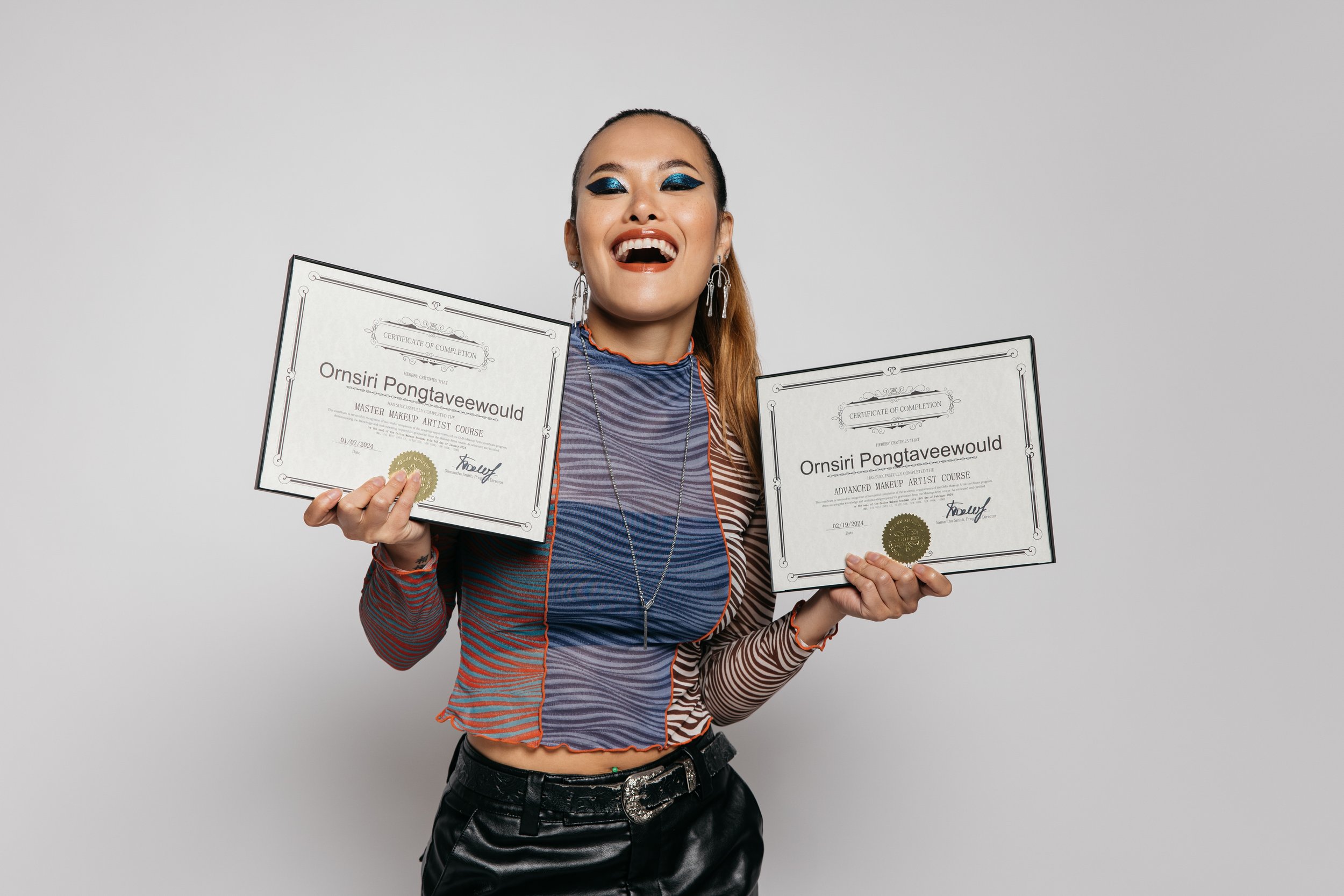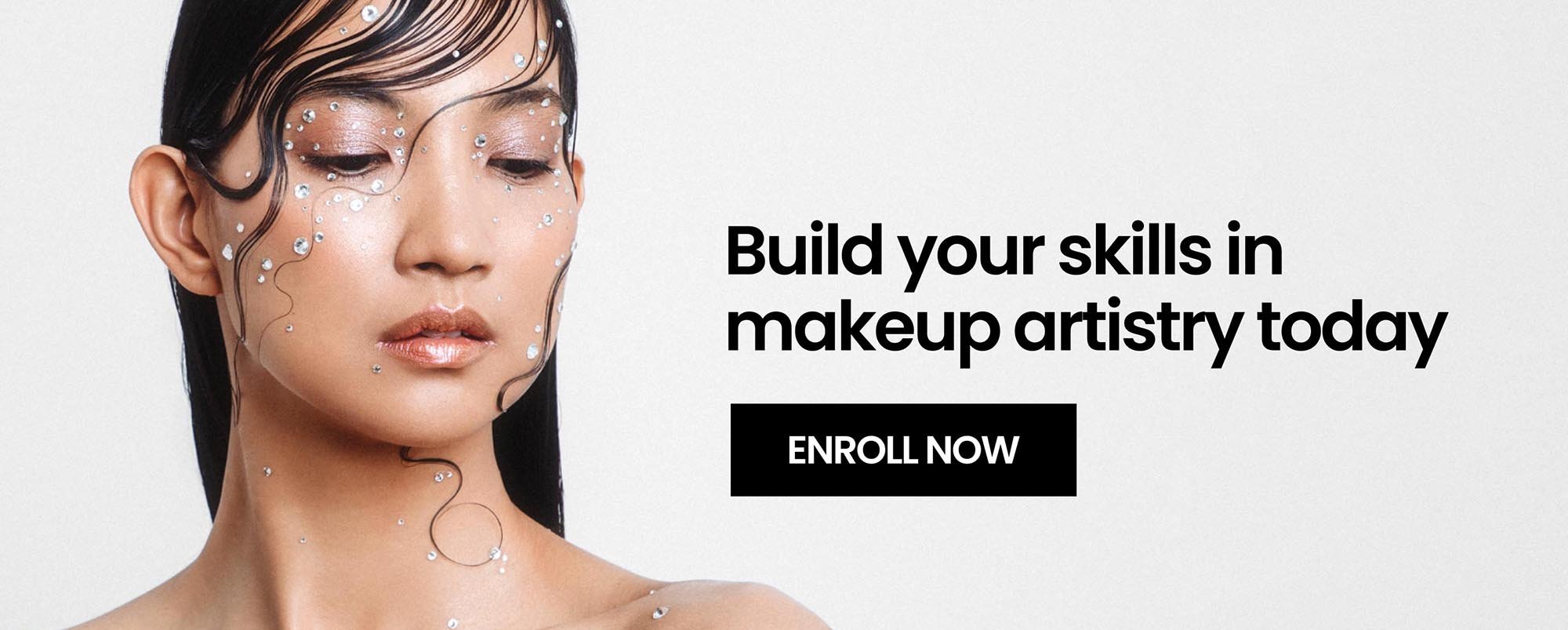How Much Money Do Makeup Artists Make? Ultimate Earnings Guide
Introduction
The question "How much do makeup artists make?" doesn't have a one-size-fits-all answer, and honestly, that's what makes this career so interesting. Whether you're considering a switch into makeup artistry or you're already committed but curious about income potential, the reality is that makeup artist earnings vary wildly based on specialization, location, business model, and hustle factor.
According to the Bureau of Labor Statistics, the median annual wage for makeup artists sits around $40,000-$50,000, but that's actually selling the profession short. Many makeup artists, especially those who've built their own clientele and diversified their income streams, earn significantly more. The key is understanding the different paths and what each actually pays.
This guide breaks down real earning potential across different makeup artistry specializations, business models, and experience levels. We've pulled insights from actual makeup artists on Reddit, industry forums, and our own research to give you the unfiltered truth about makeup artist income.
Average Makeup Artist Salary: The Numbers
Let's start with baseline data. A full-time makeup artist working for a salon, spa, or freelance can expect to earn:
Entry-level (0-2 years): $25,000-$35,000 annually if working salon-based, or $150-$300 per event freelancing
Mid-level (3-5 years): $35,000-$50,000 annually as a salon artist, or $300-$600 per event with a solid client base
Experienced (5+ years): $50,000-$75,000+ annually, depending on specialization and business structure
High-earners: $75,000-$150,000+ annually (typically owners of their own businesses or highly specialized artists)
The wide range exists because makeup artistry income depends on whether you're:
Working for a salon or makeup counter (W-2 employee)
Freelancing from your own space
Running your own makeup artistry business
Specializing in high-demand niches (bridal, special effects, film/TV)
Makeup Artist Earnings by Specialization
Bridal Makeup Artist
Bridal makeup is the most lucrative mainstream specialization for makeup artists. Brides typically aren't price-sensitive, book well in advance, and often purchase multiple services.
Average earnings: $1,500-$5,000+ per wedding
Most bridal makeup artists charge per application. A typical bridal package includes the bride ($300-$800), bridesmaids ($150-$300 each), and sometimes mothers/family members. A bride with 6 bridesmaids could generate $2,000-$3,500 in revenue from one wedding.
Annual potential: Working 20-30 weddings per year (pretty standard for established bridal artists), you're looking at $30,000-$150,000 depending on pricing and your market. High-end bridal artists in major cities regularly earn $100,000+ annually.
Special Effects (SFX) Makeup Artist
SFX makeup includes stage blood, prosthetics, wounds, and creature effects. This is genuinely specialist work, not everyone can do it well, which means SFX artists command premium rates.
Average earnings: $300-$1,000+ per project (theater/film), $60,000-$100,000+ annually if employed by production companies
Independent SFX artists doing freelance theater productions, student films, and corporate events can earn $50,000-$70,000. Those working in film, TV, or special events can exceed $100,000.
Being an SFX makeup artist means you get paid to play with glue, paint, and fake blood, and somehow make it look real enough to scare people! It’s one of the few jobs where making someone look like a zombie, alien, or accident victim is actually a compliment.
Theatrical/Drag Makeup Artist
Drag makeup is experiencing a boom, and talented drag makeup artists are in high demand. This specialization often involves building clientele for regular gigs plus special events.
Average earnings: $100-$400 per performance or client session, $200-$800 per hour for drag makeup lessons/tutorials
Annual potential: $40,000-$80,000 for artists with 10+ regular clients or regular gig work
Corrective/Prosthetic Makeup
Working with burn victims, scar camouflage, or other medical/corrective applications is emotionally rewarding and financially stable.
Average earnings: $150-$400 per session, $50,000-$70,000 annually if building a consistent client base
How Location Impacts Makeup Artist Income
Geography matters. A lot.
Major metropolitan areas (NYC, LA, Miami, Chicago): Makeup artists earn 30-50% more than national average. Bridal makeup averages $500-$1,000 per application, luxury clients pay premium rates, and there's steady work year-round.
Mid-sized cities (population 500k-2M): Average earnings are 10-20% above national average. Competition is lower, pricing is moderate, and there's enough clientele to sustain a full-time practice.
Small towns/rural areas: Earnings are typically 20-30% below national average. However, less competition means you can dominate your market if you're good. Pricing may be lower, but you can build deep, loyal clientele.
Cost of living matters too. A makeup artist earning $50,000 in rural Tennessee has different financial power than someone earning $50,000 in San Francisco. But higher-earning cities typically support higher rates across the board.
Business Model Impact: W-2 vs. Self-Employed vs. Business Owner
Your business structure dramatically impacts earnings:
Salon/Counter Employee (W-2)
Working for a salon or makeup counter (Sephora, Ulta, MAC) provides stability but limits earning potential.
Base salary: $25,000-$40,000
Commission: 10-15% on product sales, typically adding $5,000-$15,000 annually
Benefits: Health insurance, paid time off, training
Earnings ceiling: Realistically capped around $50,000 unless you're a manager
Most makeup artists working in traditional salon settings earn $30,000-$45,000 annually.
Freelance/Self-Employed
You control pricing and client selection. You handle your own scheduling, taxes, and marketing.
Entry-level pricing: $75-$150 per application
Established freelancer pricing: $150-$350 per application
High-end pricing: $350-$800+ per application (specialized services, high-demand markets)
Annual earnings: Highly variable, $25,000-$100,000+ depending on utilization rate
The main challenge? If you're booked 100% of available hours, you're limited by time. Most full-time freelancers work 4-6 clients per day, 4-5 days per week.
Business Owner
Running your own makeup artistry business, whether that's a salon, online coaching, product line, or exclusive boutique, offers unlimited earning potential but requires business acumen and upfront investment.
Salon owner: $60,000-$200,000+ depending on size, location, and renter artists
Online coaching/courses: $5,000-$50,000+ monthly if you build an audience
Product-based business: Highly variable but potentially unlimited
Boutique makeup artist space: $80,000-$150,000+ annually
Business owners typically reinvest 20-40% of revenue back into the business (supplies, rent, marketing), but they also have no ceiling on earnings.
Being a makeup artist means you’re part artist, therapist, and magician, all in one! You can completely change someone’s mood with a few brushes and colors. It’s one of the only jobs where making someone feel beautiful is literally part of the job description.
Reddit Insights: What Real Makeup Artists Are Actually Earning
We analyzed discussions from r/MakeupArtistry, r/Entrepreneur, and related communities. Here's what makeup artists are actually reporting:
Entry-level struggles: Many new makeup artists charge $30-$75 per application while building a portfolio and clientele. Some report earning $200-$400 per week initially, which isn't sustainable as a primary income.
The turning point: Artists who make $50,000+ typically spent 1-2 years building their clientele and establishing pricing power. The breakthrough comes when you stop competing on price and start building demand.
Specialization pays: Artists who specialize (bridal, SFX, luxury/high-end) consistently report higher earnings than generalists. One Reddit makeup artist noted: "I went from doing general makeup at a salon for $32k to specializing in bridal, and after 3 years I'm now at $95k. Specialization is worth the investment."
The 80/20 rule: Experienced makeup artists often report that 20% of their clients generate 80% of their income. High-value clients (bridal parties, corporate events, regular luxury clientele) are the real money.
Passive income gaps: Very few makeup artists have built meaningful passive income from courses, YouTube, or products. Those who have typically spent 2-3 years building audience before monetization became significant.
How to Increase Your Makeup Artist Income
If you're not hitting your income goals, here are proven strategies:
1. Specialize
Generalists compete on price. Specialists command premium rates. If you specialize in bridal makeup, you can charge 2-3x more than a generalist doing "general makeup."
2. Build a Signature Service
Create a unique offering. Maybe it's "5-minute bold brow designs" or "prosthetic scar camouflage for confidence recovery." This differentiates you from competitors and justifies premium pricing.
3. Target High-Value Clients
Bridal clients, corporate events, and wedding parties spend more than everyday customers. Shift your marketing to attract these demographics.
4. Raise Your Prices Gradually
If you're fully booked, you're underpriced. Incrementally raise rates (10% every 3-6 months) and watch your income grow without losing clients.
5. Diversify Income Streams
Add complementary services: lash extensions, eyebrow design, skincare, or digital products like makeup tutorials or guides. A makeup artist generating $500/week from makeup can add $200-$300/week from complementary services.
6. Build Recurring Revenue
Establish regular clients or subscription models. Monthly beauty lessons, standing wedding party bookings, or corporate retainers create predictable income.
7. Invest in Your Brand
Professional website, high-quality portfolio photography, and strategic marketing (Instagram, TikTok) attract premium clients willing to pay higher rates.
FAQ: Real Questions Makeup Artists Ask About Income
Q: Can you make a full-time living as a freelance makeup artist?
Yes, but it typically takes 1-3 years to build clientele to that level. Most full-time freelancers earn $40,000-$75,000+ after establishing themselves, with some earning significantly more through specialization and premium pricing.
Q: Do I need to own my own salon to make serious money?
Not necessarily. Many freelance makeup artists earn $60,000-$100,000+ annually without owning a physical space. Business ownership adds overhead but also removes time constraints on earnings.
Q: What's the best specialization for income potential?
Bridal makeup traditionally offers the highest rates ($300-$1,000+ per application), but SFX, prosthetics, and luxury makeup are also highly lucrative. Choose based on interest and skill, not just income.
Q: How long before I'm earning decent money as a makeup artist?
Expect 18-36 months to build a client base generating $40,000+ annually. Specializing, networking, and building a strong portfolio can accelerate this timeline.
Q: Do makeup artists earn more working for themselves or for salons?
Self-employed makeup artists typically earn 30-50% more annually once established, but they lack the stability and benefits of salon employment.
Q: How do I get to six figures as a makeup artist?
The most common paths are (1) high-volume bridal/event makeup in major markets, (2) SFX/prosthetic work in film/TV, (3) building a makeup academy or coaching business, or (4) combining makeup with complementary high-margin services.
Bottom Line: Realistic Makeup Artist Income Expectations
Makeup artistry can absolutely be a lucrative, fulfilling career. Here's what to realistically expect:
Year 1: Expect to earn $20,000-$40,000 while building your portfolio and clientele. This is investment phase, prioritize skill development and reputation building over maximum income.
Years 2-3: As your client base grows and you raise rates, expect $35,000-$55,000 annually. This is where many makeup artists reach sustainability.
Years 4+: Established makeup artists typically earn $50,000-$100,000+, especially with specialization or business ownership.
The makeup artists earning $100,000+ are typically either (a) running a business with multiple revenue streams, (b) highly specialized and working premium markets, or (c) combining makeup with adjacent services (lash extensions, skincare, training).
The good news? Unlike many creative professions, makeup artistry has genuine earning potential if you're willing to specialize, invest in your brand, and treat it like a real business rather than a hobby.
Ready to Transform Your Makeup Career Into Income?
The highest-earning makeup artists didn't get there by accident, they invested in professional training, built strong business foundations, and specialized in high-demand niches.
At Online Makeup Academy, we've helped hundreds of makeup artists go from earning $30k to $60k+ annually by combining technical excellence with smart business strategy. Our specialized courses in bridal makeup, SFX artistry, and luxury client attraction are designed for makeup artists serious about real income growth.
Whether you're just starting out or ready to level up your earnings, the time to invest in yourself is now.




